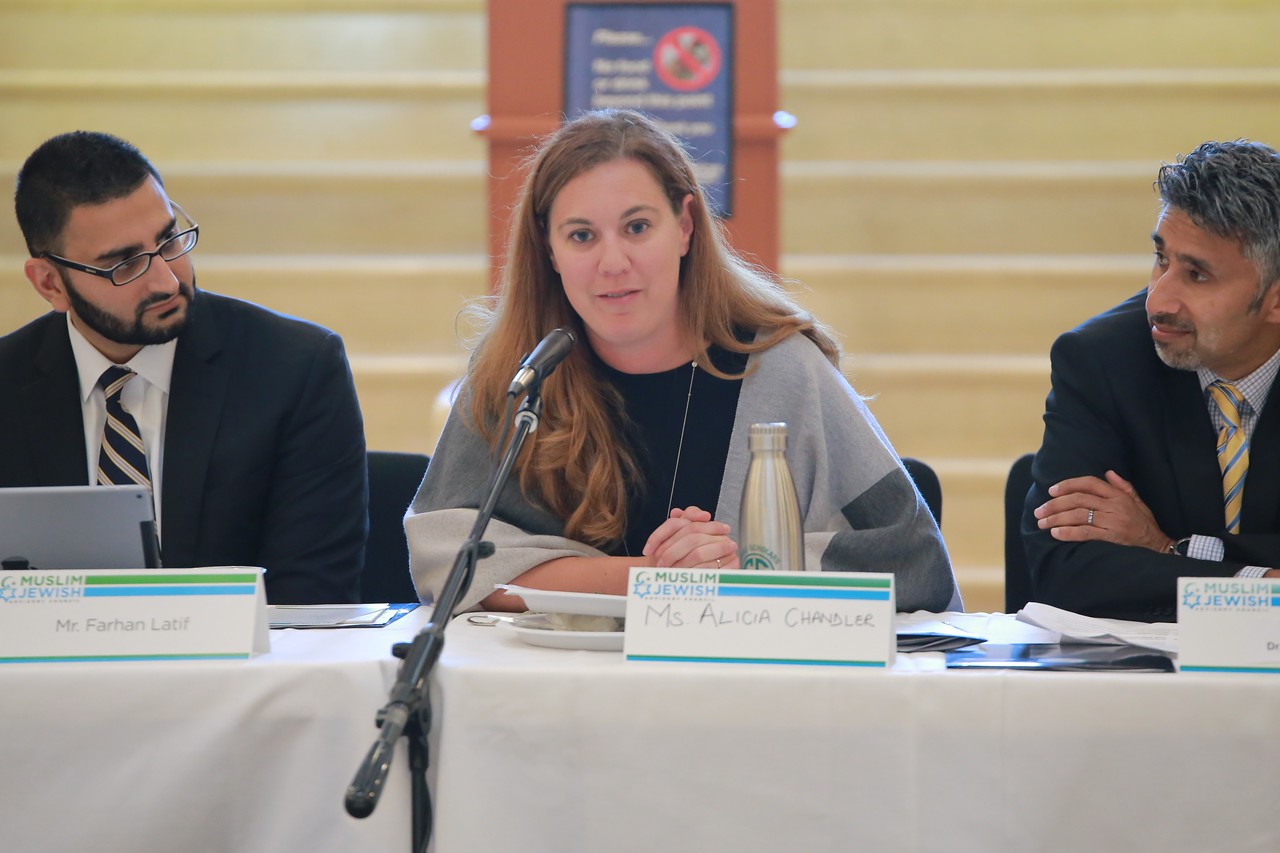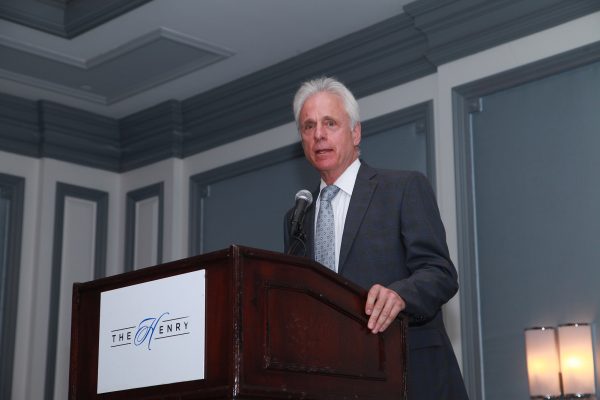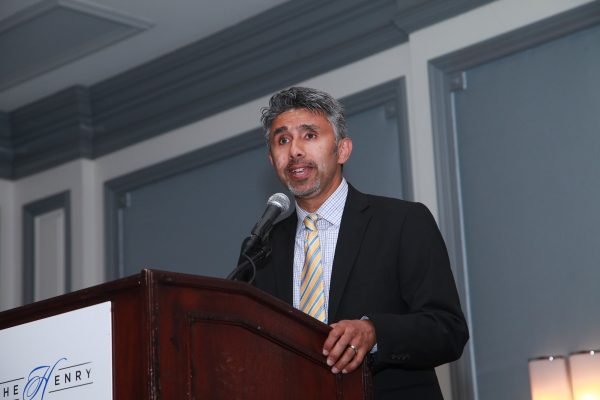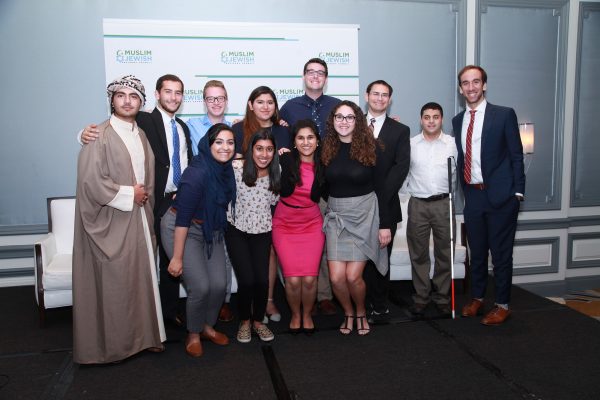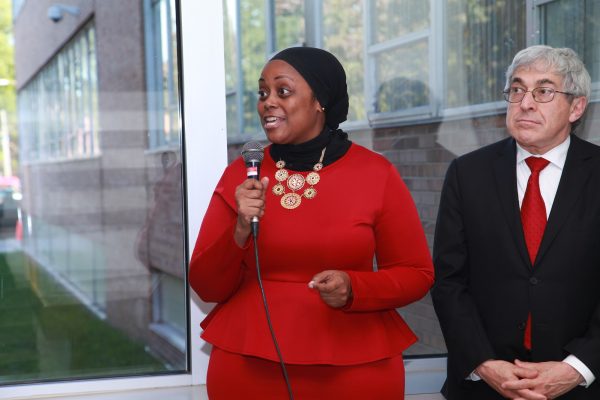Watchword Against Hate: Hope
By Vivian Henoch, Editor myJewishDetroit
November 1, 2017
by Vivian Henoch
Spotlighting Metro Detroit as home to a vibrant Jewish community and the largest Arab American population in the U.S., the Muslim-Jewish Advisory Council (MJAC) recently convened in Detroit for meetings with community leaders.
Founded in November 2016, MJAC is a national Muslim-Jewish alliance of recognized business, political and religious leaders organized to combat hate crimes and advocate on issues of common concern. Stanley Bergman, CEO of Henry Schein, and Farooq Kathwari, President and CEO of Ethan Allen, are the national Council’s co-chairs. The American Jewish Committee (AJC) and the Islamic Society of North America (ISNA) are co-conveners of the Council which has established local affiliates in Philadelphia, Los Angeles and Dallas.
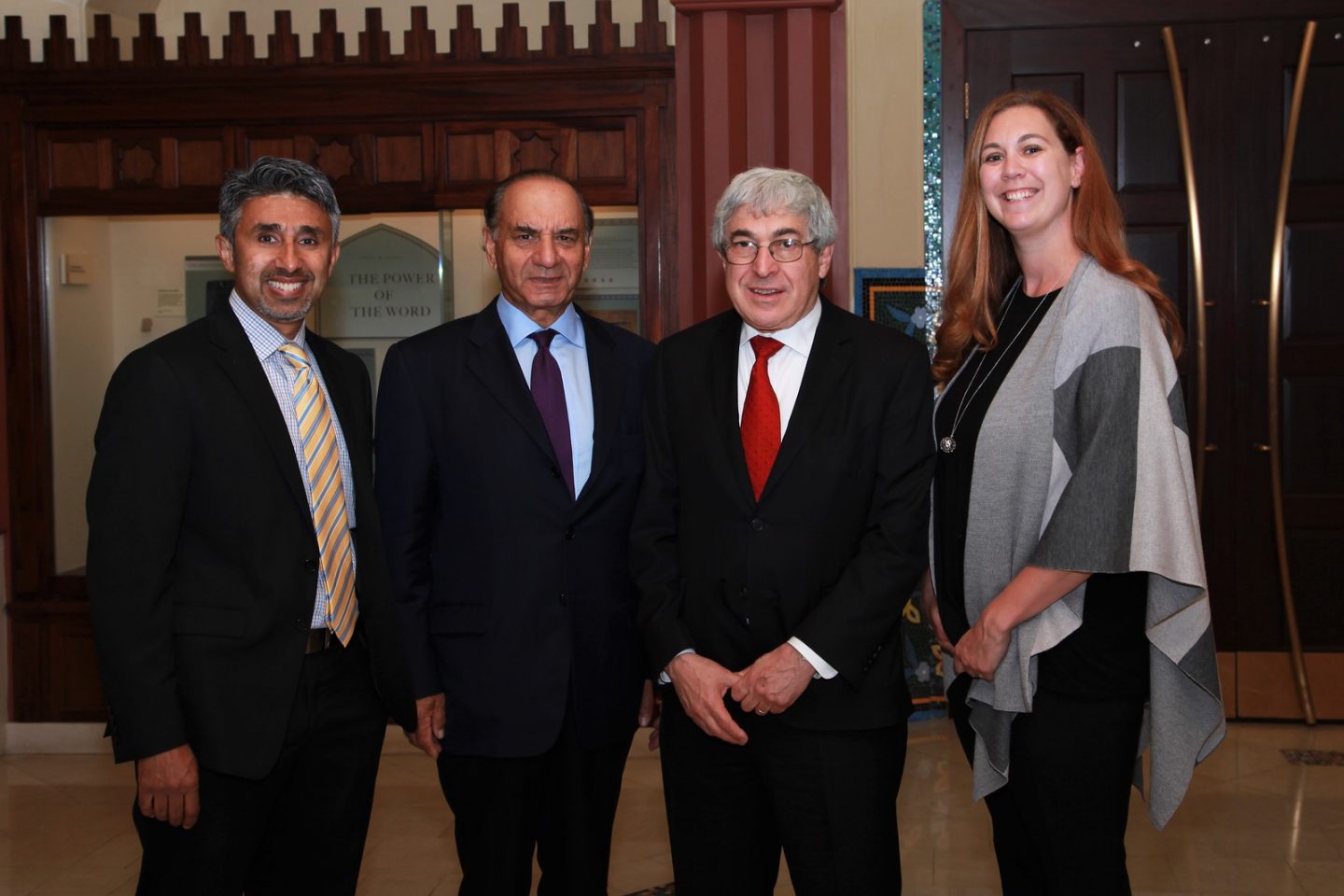
MJAC’s selection of Detroit as a destination for the recent meeting was strategic. “In their visit to Detroit – a first outside of New York City and Washington, DC, and seventh face-to-face meeting since their founding – the Muslim-Jewish Advisory Council has signaled a major step in bringing to light important initiatives that have deepened our relationships between Detroit’s Muslim and Jewish communities,” observed David Kurzmann, Executive Director of the Jewish Community Relations Council/AJC (JCRC/AJC).
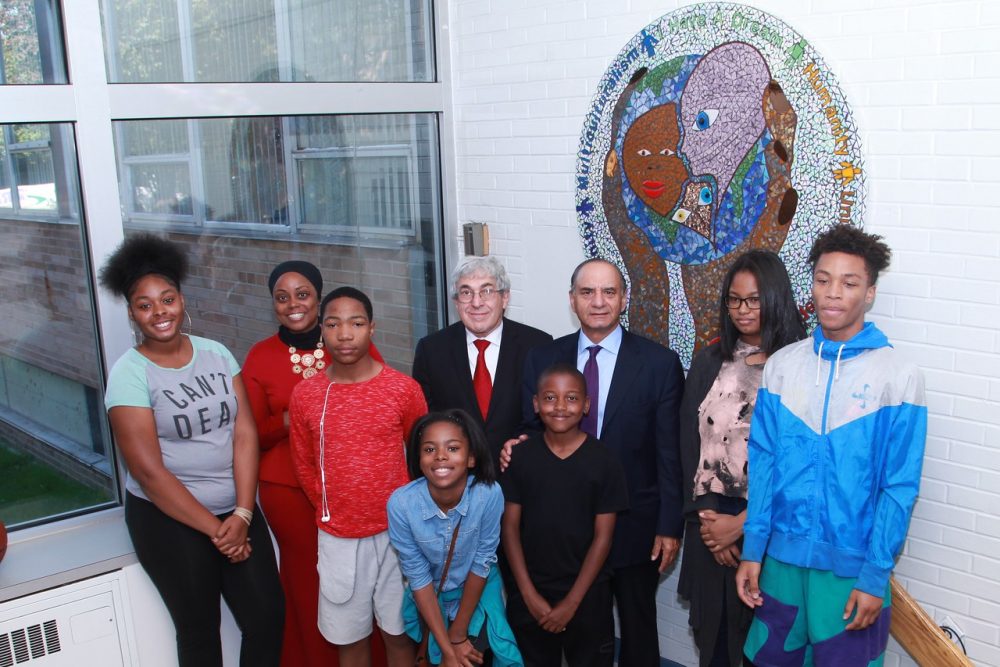
From Strength to Strength
Joining Detroit Jewish and Muslim community leaders, Muslim-Jewish Advisory Council members toured the Arab American National Museum, visited Detroit’s Northwest Activities Center (the site of a former Jewish Community Center) and ended the day with a town hall meeting at The Henry Hotel in Dearborn, coordinated by the Michigan Muslim Community Council (MMCC) and the Jewish Community Relations Council/AJC.
By invitation, the meeting drew more than 150 from synagogues, mosques and community groups to hear a dozen speakers including a panel to take questions from the audience.
“Silence is no longer an option.”
“We’ve got to speak out,” said Farooq Kathwari. “I came from the beautiful mountains of Kashmir to beautiful Brooklyn. In all these years [in this country], I never thought about being different. I never knew religion to play a role, and it still doesn’t for me personally. . . But now I see concern among my own children.”
As Mr. Kathwari described, his decision to co-chair MJAC was well measured. “My first response was I don’t think so,” he admits. “I am a senior of a very large company – a household name – with people working for us in the mountains of New England, North Carolina, Mississippi, Oklahoma – every state in the nation. We asked what negative consequences we could possibly have, but we felt that if we do it right, our initiative would be well received.”
Drawing from his own immigrant experience – born in South Africa of parents who came from Nazi Germany, “moving from one hate to another” – Stanley Berman began his remarks with the observation, “Since the early part of 2016, and for the first time in 40 years, hate statements have been renewed in the public dialogue. There are more hate crimes committed against Jews than any other people, but the fastest growing rate of hate crimes in the U.S. is against Muslims.”
He continued, “MJAC is not [about creating] an interfaith dialogue, per se. The AJC does that. Our purpose is to bring together people from civic society— from the business, education and NGO world —including former members of legislature – and to make the statement that we want to combat hate crime in any way possible. One of the best experiences I had so far in this process was visiting the Department of Justice in Washington. We were very well received and encouraged to see people in government who want to combat what’s going on to make a difference.”
“This is a challenging time in the U.S.” added Daniel Lemisch, Acting U.S. Attorney for the Eastern District of Michigan, representing the Department of Justice. “The hate that has poisoned our country these days stems from fear. And people fear what they don’t understand. Understanding is our antidote. And how do we do that? We do what we’re doing here [in this town hall]. We’re sitting together, talking to each other . . . and more importantly, listening to one another. And when you break bread together, look your fellow neighbors in the eye, you recognize the humanity that is common among all of us. That’s going to get us through.”
“Why we do what we do”
“I blame Santa Claus,” said Dr. Muzammil Ahmed, Chairman of the Michigan Muslim Community Council. “About eight or ten years ago one of my kids asked why is Santa not visiting us. As I sorted through that explanation, and then sorted through our own obligation based on our faith to give back to the community to make it a better place, it occurred to me to look to the example of some of the communities that have been here for a long time. The Jewish community is one that has been doing a Mitzvah Day for many years during Christmas, and at that time we said, ‘Why not join on board and work for a common end?’ We both share same values, we both share the same “lack” of celebrating certain holidays – and really want to give back to the community. And from there we started a great partnership. There were a lot of great mentors that paved the way, but we have formed an ongoing relationship where we have made a commitment to give back to our city, make it a better place. And we feel that our shared values, our shared initiatives will really make our state better for everybody . . . and we hope to help everyone who wants to join us on our journey.”
To continue the dialogue, visit online or call the Jewish Community Relations Council/AJC 248-642-5393 and the Michigan Muslim Community Council 248-268-2766.
To celebrate the tradition of Mitzvah Day in the community, please call for your volunteer spot now: 248-642-2656 or email nlevine@jfmd.org

